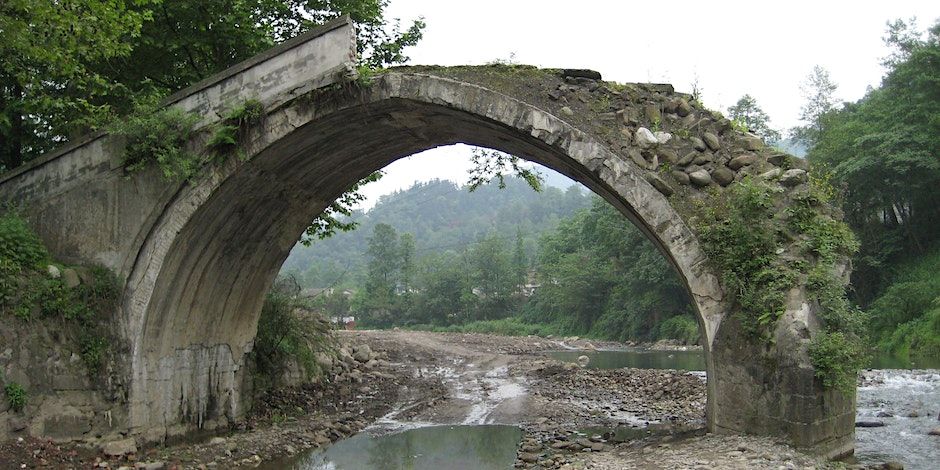Disaster Risk Reduction, Climate Change and Social Vulnerabilities - Online
Event Details
The extreme weather events during the summer of 2022 and 2023 have led to catastrophic heatwaves, floods, and wildfires that have impacted on people,
Event Details
The extreme weather events during the summer of 2022 and 2023 have led to catastrophic heatwaves, floods, and wildfires that have impacted on people, lives, livelihoods, animals, plants, and the planet itself. The Disaster Risk Reduction, Climate Change and Social Vulnerabilities in Context: Celebrating International Friendships, Knowledge, and Achievements, conference considers various climate-induced disaster scenarios and how to change human behaviour to take care of the planet and all it contains to minimise such damage in future. The conference has three keynote addresses led by world experts in this field, Professor David Alexander from UCL, Professor Manish Jha from the Tata Institute, and Professor Julie Drolet from the University of Calgary. There will be question and answers sessions after each speaker.
Agenda
09:30 – 10:00
Registration and Coffee
10:00 – 10:05
Welcome and Introductions
Professor Lena Dominelli
10:05 – 10:15
Introductory Remarks
Professor Derek McGhee
10:15 – 10:30
Launch of ‘Social Work in Times of Disasters’
10:30 – 11:00
Climate Change, Poverty & Vulnerability
Professor Manish Jha
11:00 – 11:15
Q&A
Professor Manish Jha
11:15 – 11:30
Coffee Break
11:30 – 12:00
Systemic Risks, Complexity & Context
Professor David Alexander
12:00 – 12:15
Q&A
Professor David Alexander
12:15 – 12:45
The Role of Social Service Provision in Disaster Recovery
Professor Julie Drolet
12:45 – 13:00
Q&A
Professor Julie Drolet
13:00 – 13:15
Closing Remarks
Professor Lena Dominelli
13:15 – 14:00
Lunch
Event Speakers
David Alexander, PhD, Professor of Emergency Planning and Management, the Institute for Risk and Disaster Reduction, Faculty of Maths and Physical Sciences, at University College London (UCL).
David’s presentation is entitled: Systemic Risks, Complexity and Context: Emerging Challenges in Disaster Risk Reduction
Bio:
A Geography graduate from the LSE, David completed his PhD in Mediterranean geomorphology at UCL. He spent the years 1982 to 2002 teaching geomorphology, physical geography, natural hazards and disaster studies at the University of Massachusetts-Amherst, USA. Over the years 2003 to 2007, David served as Scientific Director of the Advanced School of Civil Protection of Lombardy, Italy. He broke new ground as a Professor at the University of Florence from 2005 to 2011, where he contributed to the design, launch and taught teaching of Italy’s first Master of Civil Protection Programme. David holds Visiting Professorships at the Universities of Bournemouth and Northumbria (UK), Coimbra (Portugal), Lund (Sweden), and Tohoku, Yamaguchi and Kyoto (Japan). He is also Research Fellow at the Global Risk Forum in Davos, Switzerland. David has published widely, and his Natural Disasters has been required reading for students studying disasters. His other books include: Confronting Catastrophe (2000), Principles of Emergency Planning and Management (2002), Recovery from Disaster (with Ian Davis, 2015) and How to Write an Emergency Plan (2016).
David Alexander founded the International Journal of Disaster Risk Reduction and is its Editor-in-Chief. He was previously Editor-in-Chief of Environmental Management (Springer) and Co-Editor of Disasters (Wiley). He is a member of the editorial boards of 14 other academic journals. David is Vice-President and Chairman of the Trustees of the Institute of Civil Protection and Emergency Management, the oldest learned society in disaster reduction. In 2013, David was awarded the Distinguished Research Award of the International Society for Integrated Disaster Risk Management.
Abstract:
Systemic Risks, Complexity and Context: Emerging Challenges in Disaster Risk Reduction
In the modern world we live in networked societies. Moreover, in order to sustain the functions of daily life we are increasingly dependent on critical infrastructure. This means that the impacts of disaster tend to proliferate through our networks and generate series of adverse consequences. The theory of cascading disasters involves making sense of complexity and studying the interaction between diverse kinds of vulnerability, a phenomenon that can create escalation points that sometimes have a greater impact than the primary trigger event. Although there is much to learn from past events, we are moving into an age in which the past will no longer furnish reliable examples of what could happen next. Intensification of meteorological phenomena due to climate change, unplanned mass migration, proliferating technological failure and newly emerging risks are examples of contingencies that require us to exercise foresight as we endeavour to plan for and mitigate them. When engaging in the practical study of disasters we need to consider the root causes, the dynamic pressures, the precipitating events and the systemic effects. We also need to take into account the role of context, considered as a set of factors that have no direct bearing on the disaster but in reality define the conditions in which it occurs. This talk introduces models designed for disasters in the 21st century and discusses examples of events, and efforts to manage or mitigate them, that show the way towards future challenges and how to face up to them.
Manish Jha, PhD, Professor of Community Organisation and Development Practice, School of Social Work, Tata Institute of Social Sciences (TISS), Mumbai, India.
Manish’s presentation is entitled: Climate Change, Poverty and Vulnerability: Ground Reality and Community based response.
Bio:
Manish Jha has been a former Dean of the School of Social Work and Chairperson, Centre for Community Organisation and Development Practice at TISS. He has also been a Lecturer at the University of Delhi. His research interests include: refugees and migration, disaster response, poverty, social policy, and social justice. He has engaged in disaster response and humanitarian aid in numerous disaster situations in India and South Asia, aquiring hands-on experience of working with disaster impacted communities after the 2001 Gujarat Earthquake, the 2004 Indian Ocean Tsunami, 2008 Bihar Floods, 2013 Uttarakhand Floods, 2014 Kashmir Flood, and 2015 Nepal Earthquakes. He has also led the relief and rehabilitation process after inter-community violence in many states in India. Manish teaches courses on Community Organisation, Social Policy, Social Action, Advocacy and Movements, and Migration and Politics. He has been visiting Fellow at School of Oriental and African Studies (SOAS), London, University College Dublin (UCD), University of Durham, UK, Gothenburg University, Sweden and other places. A prolific writer, Manish has contributed to international journals and edited volumes on migration, disaster, community organisation, politics, populism and social justice. He has led numerous collaborative research projects with international and national partner institutes on community mobilisation, social cohesion, climate change and migration.
Abstract:
Climate Change, Poverty and Vulnerability: Ground Reality and Community based response
Climate change is compounding existing poverty and inequality in many parts of the world. Its adverse impacts are most striking in developing nations because of their geographical and climatic conditions, their high dependence on natural resources, and their limited capacity to adapt to a changing climate. Climatic shocks substantially increase the risk of undernutrition among children, loss of productive assets, and an overall impact on the quality of life of the people especially for the marginalized sections of the society. Quite often people are forced to undertake distressed migration and experience multiple vulnerabilities at the pace of work. It is these situations that demand community-based responses to affected communities. There are numerous innovative and creative ways through which social workers and community organisers engage with the looming problem and support in reducing the risk and vulnerability of the affected community.
Julie Drolet, PhD, is Professor in the Faculty of Social Work at the University of Calgary’s Central and Northern Alberta Region in Edmonton.
Julie’s presentation is entitled, The Role of Social Service Provision in Disaster Recovery: Building Capacity Through the Social Work and Disaster Network.
Bio:
Julie Drolet is the Project Director of the Transforming the Field Education Landscape (TFEL) partnership project. Her research and teaching interests include international social work and social development, disaster recovery, climate change, environmental justice and sustainability, field education, social protection, and immigrant settlement and integration. She has many years of social work practice, policy, and research experience in Canada and in Africa, and has published widely.
Abstract:
The Role of Social Service Provision in Disaster Recovery: Building Capacity Through the Social Work and Disaster Network
The 2016 Alberta wildfires resulted in devastating human, economic and environmental impacts. Disaster events are often exacerbated by climate change and environmental degradation and have a catastrophic impact on local communities. Social work practitioners and human service professionals are increasingly involved in disaster contexts. However, their role in disaster preparedness, response, and recovery is frequently misunderstood, overlooked, or undervalued. The study In the Aftermath of the 2016 Alberta Wildfire: Experiences of Social Work Practitioners and Human Service Professionals in Long-term Disaster Recovery found that social service providers play a critical role in disaster contexts.
Julie’s presentation will discuss the research project in which she conducted 40 individual interviews with social workers and human service professionals, facilitated six focus group discussion sessions, and carried out an online survey with 89 respondents. Participants in the study claimed that, in their experience, social work offers a unique contribution to disasters. Social work practice in disaster contexts occurs at the micro, mezzo, and macro levels, from clinical practice to community development and to policy interventions and advocacy. Some participants indicated that although they were professionally trained social workers, they did not feel adequately prepared to assist in disasters and would like professional development opportunities to develop relationships, build connections, and learn from other social workers who have disaster experience. The study’s results demonstrate that there is a need to support social workers and human service professionals involved in all phases of disaster preparedness, response, and recovery. To meet this need, Julie founded the Social Work and Disaster Network (SWAD) that aims to build capacity and create awareness of the roles of social workers and social service professionals in disaster contexts. SWAD contributes to building a more resilient, inclusive, and sustainable society while reducing inequalities and vulnerabilities in Alberta, Canada. SWAD’s objectives are: 1) to facilitate information exchange, networking, and relationship building; 2) to enhance collaboration and partnerships among disaster social workers and social service professionals; and 3) through training opportunities, peer-support, and educational events, SWAD will contribute to building the capacity of communities before (preparedness), during (response) and after (recovery) disasters. The Social Work and Disaster Network is aligned with the United Nations Sustainable Development Goals, specifically goal 11 to ‘Make cities and human settlements inclusive, safe, resilient and sustainable” and goal 13 to “Take urgent action to combat climate change.’ The presentation will also discuss the SWAD network and related training and educational activities for capacity development.
more


